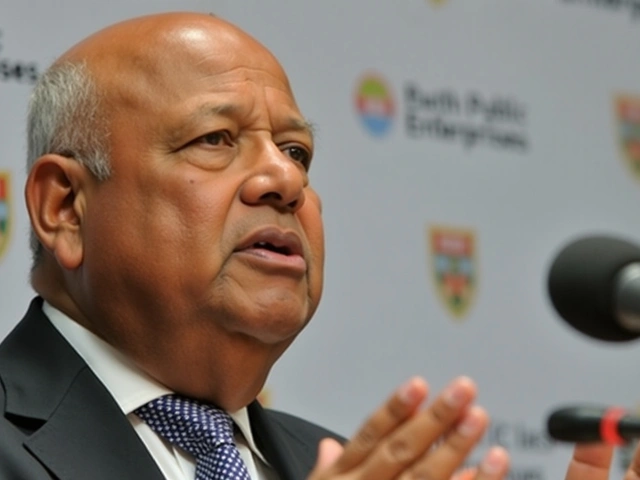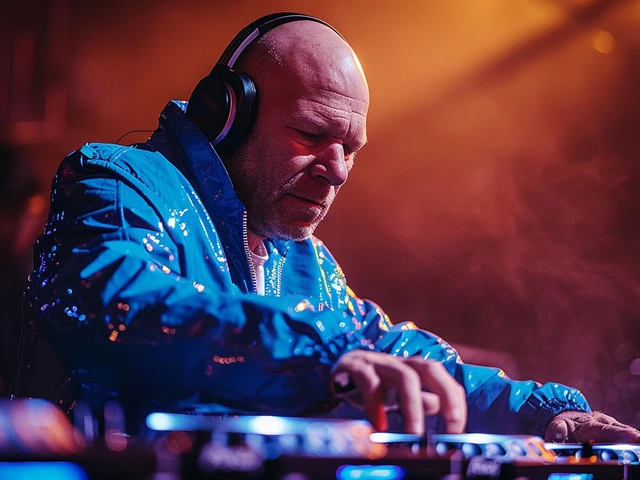
A Disturbing Revelation Comes to Light
In an unsettling turn of events, a video has surfaced, showing Sean 'Diddy' Combs in a violent altercation with his then-girlfriend, Cassie Ventura. The footage, reportedly dated March 5, 2016, reveals Diddy kicking, hitting, and dragging Cassie in a hotel hallway. This shocking revelation has prompted a wave of reactions from both the public and mental health professionals, who emphasize the potential psychological impact of watching such distressing content.
Mental Health Experts Warn of the Dangers
Mental health experts are voicing strong concerns about the potential consequences of viewing the video. They highlight the importance of considering personal triggers before deciding to watch the footage. For individuals who have experienced domestic abuse or violence, the video can act as a significant emotional trigger, potentially retraumatizing them. However, even those without a direct history of such experiences are not immune to the distress such content can provoke.
The Impact on Survivors of Domestic Violence
Survivors of domestic violence often carry deep emotional scars, and exposure to similar violent incidents can reopen these wounds. Seeing another person endure what they have previously suffered can cause intense emotional reactions, including anxiety, depression, and panic attacks. Many mental health professionals argue that these reactions can significantly impair an individual’s wellbeing and mental health.
Distress Among the General Public
Even for those who have not personally experienced domestic violence, witnessing such acts of cruelty can be profoundly distressing. Experts explain that vicarious trauma is a real phenomenon, where individuals develop symptoms of trauma through indirect exposure to traumatic events. As such, viewing the Diddy-Cassie video could lead to emotional disturbances, including feelings of anger, helplessness, and sadness.
The Role of Media in Dissemination
The media plays a crucial role in reporting incidents of domestic violence and raising awareness about the seriousness of such issues. However, the ethical considerations surrounding the dissemination of graphic content cannot be overlooked. While it is essential to report the truth, it is equally crucial to consider the potential harm such graphic evidence can inflict on the public. Media outlets, like CNN, that choose to release such footage should strive to provide appropriate warnings about the content and its potential effects on viewers.
Responsible Media Consumption
For the public, making informed choices about media consumption is vital. Mental health experts recommend that individuals reflect on their emotional state and personal history before deciding to watch disturbing footage. They suggest asking questions such as, 'Do I need to see this to understand the story?' and 'Could this content trigger past trauma or cause unnecessary distress?' Prioritizing one's mental health over the curiosity to view harmful content is a responsible step towards self-care.
Alternative Actions for Advocacy
Instead of watching the disturbing footage, mental health professionals encourage individuals to channel their energy into actions that support domestic violence survivors. Engaging in activism, volunteering at shelters, participating in awareness campaigns, and donating to organizations that help victims of domestic violence are all positive and impactful ways to contribute. These actions not only support survivors but also foster a sense of community and purpose.
Understanding the Broad Impact of Domestic Violence
Domestic violence is a pervasive issue that affects millions of individuals worldwide. It transcends socioeconomic, racial, and cultural boundaries, leaving a trail of psychological, emotional, and physical damage. Raising awareness about domestic violence involves acknowledging its impact and working collectively to support survivors and prevent future incidences.
The Need for Comprehensive Support
Survivors of domestic violence require comprehensive support to heal and rebuild their lives. This includes access to counseling services, safe housing, legal assistance, and economic support. By recognizing and addressing the multifaceted needs of survivors, society can play a pivotal role in fostering their recovery and empowerment.
Education and Prevention
Education is a powerful tool in the fight against domestic violence. Teaching individuals about healthy relationships, consent, and conflict resolution from an early age can help prevent the normalization of abusive behavior. Schools, workplaces, and community organizations can all contribute to this educational effort by implementing programs and workshops focused on these critical topics.
Moving Forward: A Collective Responsibility
The distressing footage of Diddy assaulting Cassie Ventura serves as a stark reminder of the prevalence of domestic violence and the urgent need for action. Mental health professionals urge the public to consider the psychological impact of witnessing such violence and to make informed decisions about media consumption. By focusing on supportive actions and raising awareness, individuals can make meaningful contributions to the fight against domestic violence and advocate for a safer and more compassionate society.







i cant even... this is sooo messed up!!
The footage is undeniably harrowing, and its circulation raises profound ethical questions. While I understand the public's appetite for raw truth, we must weigh that against the psychological toll on vulnerable viewers. Experts have sounded alarms, yet many still dive into the content out of morbid curiosity.
Such voyeuristic impulses can be traced back to a deeper societal fascination with scandal. In my experience, when we watch these videos, we are not merely informed but also inadvertently retraumatized. The very act of replaying violence perpetuates a cycle of harm that extends beyond the original act.
Moreover, the legal ramifications of disseminating unverified footage remain murky at best. There is also a question of consent; the individuals in the video never agreed to be displayed in an endless loop. The mental health ramifications are well documented, ranging from acute anxiety spikes to long‑term depressive episodes.
Researchers have linked repeated exposure to graphic content with heightened cortisol levels, a physiological marker of stress. In the context of domestic abuse, vicarious trauma can be as damaging as firsthand experience. Therefore, before you click, consider whether you truly need to witness that brutality.
If the goal is advocacy, there are more compassionate ways to support survivors. Donating to vetted organizations, amplifying survivor voices, and promoting education are far more effective. In short, protect your mental health and let the media handle the heavy lifting responsibly.
Honestly, the whole thing feels like a twisted reality show, and that should be enough to make anyone pause. I get that some folks think watching is “educational,” but it’s more akin to reliving someone else’s nightmare. Passive‑aggressive as it sounds, I’m not trying to police your clicks, yet I’m calling out the harmful undercurrent. The aggression in the footage seeps into the viewer’s psyche, whether you admit it or not. So, think twice before you add it to your watchlist.
We’ve all seen how graphic content can trigger strong emotional responses 😔. It’s crucial to remember that behind every clip there’s a human story, and empathy should guide our choices 💡. If you’re looking to help, consider redirecting that energy into supporting local shelters or advocacy groups 🌱. Media literacy also plays a role; questioning why a video is released can empower us to demand responsible reporting 📣. Stay safe and kind to yourself and others! 😊
While the sentiment is well‑intentioned, the phrasing contains several grammatical inaccuracies that could mislead readers. For instance, “they’re” should be “their” when referring to possessive form, and “its” is preferred over “it’s” in this context. Moreover, the moral imperative to protect mental health must be articulated without vague qualifiers. Please ensure that future contributions adhere to standard English conventions. Thank you for understanding :)
Oh, because nothing screams “constructive activism” like a front‑row seat to trauma, right? The sheer brilliance of demanding viewers watch the very thing they claim to despise is just, uhh, spectacular. If we wanted to spread awareness, maybe we could try… I don’t know, actually listening to survivors instead of binge‑watching their pain? 🙄 But hey, popcorn is cheap and vicarious horror is apparently a trending hobby.
Hey everyone, I totally get the urge to dive into the nitty‑gritty details of high‑profile incidents, but let’s take a step back and reflect on our own well‑being first. It’s easy to get caught up in the whirlwind of media hype, especially when sensational headlines dominate our feeds, yet we have the power to choose what we consume. By prioritizing self‑care, we not only protect our mental health but also model healthy boundaries for others in our community. If you’re looking for ways to make a difference, consider volunteering at a local shelter or supporting organizations that empower survivors-those actions have a tangible impact far beyond any fleeting shock value. Keep your spirits up, stay compassionate, and remember that you’re stronger than the headlines suggest!
Totally agree, dude. Small steps like donating or sharing reliable resources can actually move the needle. Let’s keep the conversation grounded and helpful. 🙌
Folks, we’ve got a situation on our hands; a video, undeniably graphic, has surfaced, and the implications are vast, ranging from ethical dilemmas to psychological repercussions, so proceed with caution, keep your triggers in mind, and remember that mental health should always take precedence; if you’re uncertain, it might be best to skip the footage altogether.
From a clinical standpoint, exposure to secondary traumatic content can induce a cascade of neuroendocrine responses, notably elevated cortisol and amygdalar activation, which correlate with heightened anxiety metrics. Consequently, implementing a pre‑exposure risk assessment-considering variables such as prior trauma exposure, current affective baseline, and resilience factors-is paramount to mitigate iatrogenic harm. Leveraging evidence‑based protocols, such as the Psychological First Aid framework, can further safeguard at‑risk populations while preserving the integrity of informational dissemination.
Just say no to that nasty video stay safe keep your mind clear :)